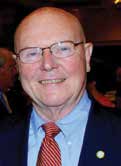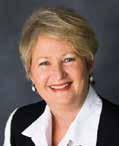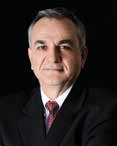Professionals Seeking Citizenship Immigration Reform

Mike Reagen
Citizen Member Editorial Board
THE QUIET QUEST – Part 4 of 4
All agree our immigration policies need to be reviewed and reformed. Disagreement abounds on what needs to be improved and how it can be achieved.
The actual process is variable. For the professional, for the educated, it is laborious.
Clearly the situation is dynamic. While the debate rages, educated and professionals continue to seek U.S. Citizenship. International students are just one example.
“Get the best education possible before you apply for citizenship. Hone your special skills. Go to an American College. Become valuable so you can continue to stay in USA. Contributions from Refugees, from Foreign-borns bring different perspectives to local cultures. Position Logic sells products and services to foreign countries and brings the money back to Florida” says Hong Long, Laos-born and now VP of Position Logic.
For Luis Bernal though all went smoothly. “I had no problem with the naturalization process. Immigration is different for professionals than it is for poor illiterate people. I used an attorney and paid $6000 to help process our applications.” Bernal says. ““Becoming a US citizen was a beautiful experience. The best part of the six-year process for me was not just getting my papers. In 2003, it was the excitement of acquiring a new culture and enhancing the love for my family by together embracing our commitment to the USA,” Luis Bernal, born in Columbia now President Global Development Consultants said. “When I opened the letter signed by President George W. Bush, I thought WOW! I was an American. Not a member of any Party or special interest group. Becoming a US Citizen symbolized a start of a new life and brings hope, happiness, a sense of belonging, privileged and responsibility. It allowed me to stop thinking of myself as a second-class person.” Bernal said.
 Nicole Symthe, NCH Wellness Center Massage Therapist, who successful gained asylum in the USA after fleeing Zambia with her family, on the other hand, is thankful all worked out. “The USA is known for its free and fair treatment of its people and also for its chance to make good of your life again without any bias towards race, color or creed,” she said recently.
Nicole Symthe, NCH Wellness Center Massage Therapist, who successful gained asylum in the USA after fleeing Zambia with her family, on the other hand, is thankful all worked out. “The USA is known for its free and fair treatment of its people and also for its chance to make good of your life again without any bias towards race, color or creed,” she said recently.
“The interview for asylum status was in Miami and it was five hours long. They checked all our credentials and it took about eight months afterwards before we had our permanent residency. Now, seven years later, we are able to apply for citizenship. I believe that the USA is very fair with its allowance of aliens but I do think the interviews are necessary to make sure that all background checks are done extensively. Thinking back, the best part of the process was the fact that everything works and is professionally done and organized.
The efficiency was something we had never before experienced.” Symthe said. “People outside of America still have the American dream. They want to come here and most of them want to contribute. Have good intentions, want to better their lives. America is the truly the land of opportunity. If I were in a country and being oppressed, I would do all I could to come to America. I don’t think folks should be punished for wanting to come here. We should have a system to help folks who want to come there to work and contribute. We should emphasis contributions foreign-borns can make: most are hard workers. Give them a chance to work, to better themselves. Social media is making the world smaller. Social media allows us to look at situations from different angles. We Americans must expand our perspectives. What we think may not be 100 percent true because it is based on our perspective. At least, we need to stand back, listen to and accept other peoples’ viewpoints,” says entrepreneur and Laos-born, Hong Long.
 And for marketing executive Cathy Christopher, Jamaican Born and now Marketing Director of Naples Inn on Fifth, the process ended with a treat. “Crossing the border from Canada at Niagara Falls with my green card and having been processed for 45 minutes by the wonderful U.S. immigration officers, after which I had a slice of pizza and thought ‘Now, it’s up to you Baby!” Christopher said.
And for marketing executive Cathy Christopher, Jamaican Born and now Marketing Director of Naples Inn on Fifth, the process ended with a treat. “Crossing the border from Canada at Niagara Falls with my green card and having been processed for 45 minutes by the wonderful U.S. immigration officers, after which I had a slice of pizza and thought ‘Now, it’s up to you Baby!” Christopher said.
But for many the process is variable and it is not easy.
Jennifer Frankel, researcher, recently noted that in 2013, “Many international students come to the USA with the idea that America is the land of opportunity and that once they
obtain a US degree, they will be able to gain employment.” But she says “The reality, however, is not this simple. Under the current US visa structure, opportunities are quite limited.” Citing a study by the Brookings Institute, Frankel says that is because less than 20 percent of foreign students studying in the US will be able to secure optional practical training upon their undergraduate graduation with the hope of earning sponsorship to an H-1B temporary work permit. And the cost to US Employers [$1000+ per application] is speculative because there is a cap on sponsorships. Frankel writes that by the end of 2014 there may be 124,000 petitions for the H-1B visas.
Many of these petitions may not be granted so thousands of these international students will return to their native country.
 Rey Pezeshkan, Iranian –born, Founder of PK Studios, Inc. in Naples, whose team of architects and planners have designed over 5000 units and commercial buildings in SWFL, is upset about the international student situation.
Rey Pezeshkan, Iranian –born, Founder of PK Studios, Inc. in Naples, whose team of architects and planners have designed over 5000 units and commercial buildings in SWFL, is upset about the international student situation.
“The USA is really a strong beacon for many of the world’s most talented youngsters. We educate too many kids who must leave after they graduate from our colleges and universities. We should do all we can to make it easier for them to stay, get American jobs and help our nation grow,” Pezeshkan says.
“The USA provides opportunities that do not exist anywhere else in the world for those who are smart, talented and want to work hard,” Pezeshkan says. “We should staunch this brain-drain of international students having to leave America after they graduate,” he said. Over a ten-year period The Greater Naples Chamber, helped sponsor three foreign-born professionals through the process for US Citzenship. One was from the United Kingdom, one was from Colombia, and one was from Turkey. All were successful, important to The Chamber’s progress and today all are successfully employed and flourishing. But their journey took several years and cost each several thousand dollars, primarily in attorney fees. There were many moments of angst along the way.
 “We should not discourage some immigrants to knock on the doors. Letting people into America with skills and money to invest should not be a disputed topic. This county has been very good to me–to my business career and to my personal life and I would choose this country again!” Says Ekkehard Grampp, former CEO of German subsidiary in the US and now one of the SCORE leaders in SWFL.
“We should not discourage some immigrants to knock on the doors. Letting people into America with skills and money to invest should not be a disputed topic. This county has been very good to me–to my business career and to my personal life and I would choose this country again!” Says Ekkehard Grampp, former CEO of German subsidiary in the US and now one of the SCORE leaders in SWFL.
So, what should be done for the educated and professional foreign-borns seeking US citizenship?
 Perhaps, realtor Rowan Samuel, a Naples resident who was born in Zimbabwe, summarized it best for those we interviewed:
Perhaps, realtor Rowan Samuel, a Naples resident who was born in Zimbabwe, summarized it best for those we interviewed:
“Historically, immigration is what made America so successful – the “melting pot” of people who were escaping economic distress and cultural and religious persecution – those who were willing to work hard to make a better life for themselves and their families – it’s what makes America the greatest country in the world…The American Dream. I believe it is critical to have a policy that makes common sense, while still enabling a pathway to citizenship,” Samuel said.
“Of course, illegal immigrants come to the US for a better life, have a financial impact on America and are an economic engine with positives (a cheap labor pool who spend the money they earn here, for example) and negatives (crime by some who cannot get jobs or choose this path) that need to managed,” he says.
“Conversely, terrorism is a growing concern and Americans view secure borders as critical to the nation. But economically, it is not viable to “round up and ship out” illegal immigrants. So, policy makers should study the pros and cons of Ronald Reagan’s 1986 immigration bill, that offered some amnesty,” Samuel said. ”Providing some type of limited amnesty makes moral and economic sense and is in the best interest of the country,” Samuel said.
“While limited amnesty (with a tax clause), and perhaps full citizenship over time is probably a good first step, full amnesty (immediate citizenship) I believe is a mistake right now for myriad of reasons. Policy makers should study the effects (both positive and negative) of the 1986 Reagan bill.0
“Any reform,” Samuel says, “need to be nuanced so that it gives existing illegals a chance to be citizens by being productive, law abiding people who are paying into the system (via tax) so there is a net positive effect on our economy.”
“Immigration reform is complicated, but it’s not impossible and the economic upside could be tremendous,” Samuel said.
THE BOTTOM-LINE
Pulitzer Prize winning journalist and author, Nicholas Kristof, thinks most who seek U.S. citizenship possess but undaunted courage and ambition for a better life. “What separates their families from most of ours is simply the passage of time — and the lottery of birth,“ he wrote in a recent New York Times column.
“The United States will need to pass immigration reform to keep up with increasing trends both domestically and internationally,” writes Jennifer Frankel.
“The change immigration reform can bring will depend on the voice of those who will advocate for the policies in place. If you are interested in taking a stand, “she argues; “Let your Senator and Congressional Representative know you support immigration reform.”

Leave a Reply
Want to join the discussion?Feel free to contribute!